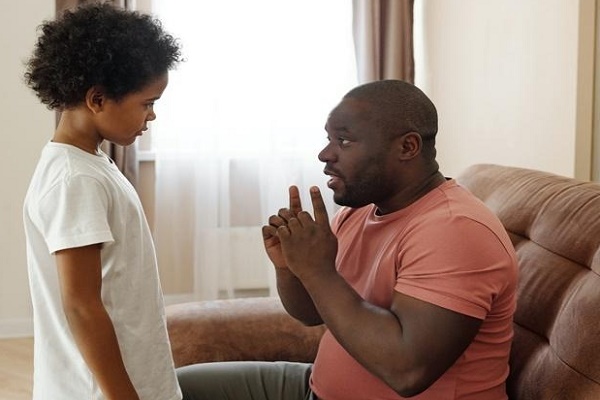
Follow us Now on Telegram ! Get daily 10 - 12 Interesting Updates. Join our Telegram Channel https://t.me/OhWomen
Download Telegram App before Joining the Channel
"You are not old enough to understand" is a phrase likely to ring a bell for millions of adults, adolescents and children across India. While the dismissive statement may seem innocuous at first, a deeper dive into the almost universally accepted, yet largely unspoken, belief uncovers a major daily hurdle faced by children today, called 'adultism, believes Sakshi, a rights-based NGO.
"At some point in our lives, we have all likely experienced a certain degree of discrimination in the form of adultism and had our decisions and life choices questioned based on our actual or perceived age. In other words, the persistent pattern of children and youth being denied the right to exercise self-determination is called adultism."
"Adultism does not suggest that age is a completely irrelevant social identity, but rather that actual or perceived age is often used to restrict a child or a young person from making their own choices. It unfairly gives adults the power to decide most features and preferences about young peoples' lives, such as how they dress, or how they behave or socialise, without a deeper understanding of the competencies and capacities that each young person possesses. Making matters worse for children, one of the country's most overlooked demographics, is that adultism festers out of social stereotypes, prejudices, and discrimination based on actual or perceived age. The choices being made for children and adolescents by adults are, therefore, further restricted by a multitude of societal evils such as casteism, sexism, class inequality, racism and ableism," says the NGO. eSakshi' is a capacity building organisation working towards systemic interventions for prevention of gender-based violence and child sexual abuse.
Adultism has emerged out of the cultural, social, and political construction of childhood and often mimics other systems of oppression through at least one of the five forms of oppression in exploitation, marginalisation, powerlessness, cultural imperialism, and violence. Adults often believe themselves to be the role models of children, the arbiters of right and wrong, while somehow also holding the belief that they do not owe children an acknowledgement of harm caused against them by adults or an apology either, asserts eSakshi'. What's more is the general societal acceptance amongst adults that children cannot hold adults accountable for their actions when harm has been done against them.
It adds: herein lies the problem, where the negative effects of adultism really begin to take a stronghold on a child's life; when adults systematically do not allow children to participate in meaningful decisions, their sense of self-worth deteriorates. Children have boundaries that are often ignored, and when children cannot hold adults accountable, it can be detrimental for their self-worth and can even lead them to doubt their power in asserting their rights to speaking up and out against those who harm them well into adulthood.
Even though the problem of adultism is so deeply-rooted and ingrained in our culture and society, there are still solutions to combat this and offer a path to meaningful long-term change. On a societal level, we must establish that care, guidance and love are what we owe to our children. This can be quantified by how much children trust their guardians to care for them when they have been harmed by their guardians or by others, says the NGO.
On a parental and individualistic level, communication is vital in ensuring children have an ideal platform to express themselves. In order to take tangible steps forward, parents should reach out to their children and reflect upon their responses to the following questions: Will you share with me a time when you were trying to express your thoughts and feelings and I did not listen? Are there things that I do that hurt your feelings? Did I ever do something that was unfair to you?
Furthermore, it is important for adults to understand that they need to allow children to hold them accountable if and when adults have wronged them. Listening and paying attention to the feelings and opinions of children is helpful as it not only allows them to express themselves, but also hold adults, parents, or guardians accountable for behaviour that is harmful, adds the NGO.
This also significantly reduces the possibilities for further violence being perpetrated against children, and creates an environment and a community of accountability, where adults can watch out for other adults who may, intentionally or not, be harming children in the process, it concludes.
Source - IANS